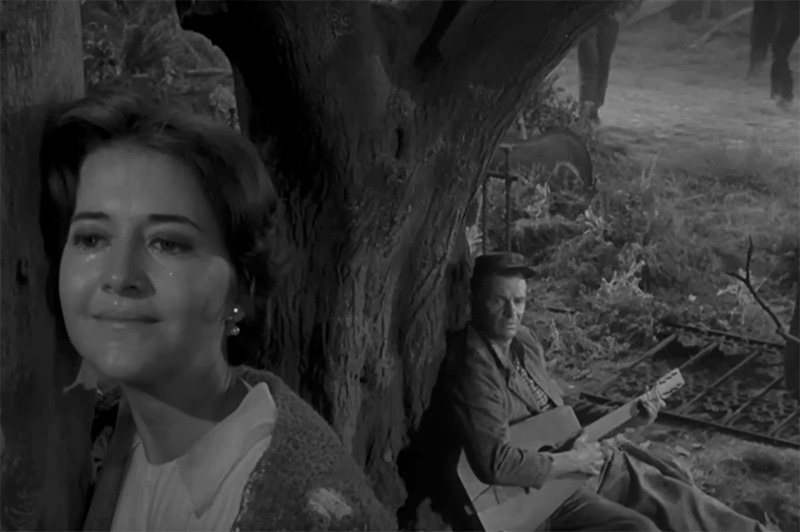
In the vast and varied universe of “The Twilight Zone,” there are episodes that have become cultural touchstones, frequently referenced and revered. Then there are episodes like “The Passersby,” which, while not as frequently cited, are equally deserving of acclaim. This episode, often overlooked in favor of its more famous counterparts, is a masterclass in storytelling, atmosphere, and allegory. Not only is it a standout within the series, but its influence has subtly rippled through many films that followed.
A Brief Overview of “The Passersby”

Set in the aftermath of the Civil War, “The Passersby” paints a haunting picture of a war-torn South. The episode opens with a Confederate Army Sergeant, limping down a road, supported by a wooden crutch and carrying a homemade guitar. His journey leads him to a dilapidated antebellum mansion, the residence of Lavinia Godwin. Lavinia, a Southern belle, is still mourning the loss of her husband in the war and harbors deep resentment towards the Union Army.
Upon the Sergeant’s request, Lavinia allows him to rest on a bench under a lifeless tree in her front yard. As he strums his guitar, playing a familiar tune, Lavinia is reminded of her late husband, who used to sing the same song. As they converse, the road outside the mansion becomes a parade of soldiers from both sides of the conflict. The sight is eerie, with the wounded and weary continuing their march down the seemingly endless road.
Their reminiscing is interrupted by the arrival of a Union Lieutenant on horseback, seeking water. The Sergeant recognizes him as the very man who saved his life during the war. In a fit of rage and lingering bitterness, Lavinia retrieves an old shotgun and fires at the Lieutenant. To her astonishment, the shot passes right through him. The Lieutenant, unfazed, comments on the inconsequential nature of things now. It’s then that the Sergeant recalls a chilling detail – the Lieutenant had died in the war.

As night falls, the true nature of the road becomes apparent to the Sergeant. It’s not just a path; it’s a passage for the souls of those who perished in the war. Determined to find out what lies at the end, the Sergeant decides to join the procession. Lavinia, desperate for company, tries to persuade him to stay. Just then, they hear the voice of Lavinia’s late husband, Jud, singing the familiar tune from earlier. The reunion is short-lived as Jud reveals the unsettling truth: everyone on the road, including Lavinia herself, is dead.
Despite Lavinia’s pleas, Jud continues his journey, promising to wait for her at the road’s end. As Lavinia grapples with this revelation, she encounters the last passerby – none other than Abraham Lincoln, symbolizing the war’s immense toll. Lincoln, in a moment of profound reflection, quotes Shakespeare’s “Julius Caesar,” emphasizing the inevitability of death. The episode concludes with Lavinia, coming to terms with her fate, joining her husband on the ethereal journey.
In “The Passersby,” “The Twilight Zone” masterfully weaves a tale of loss, acceptance, and the inexorable march of time, leaving viewers with a haunting reflection on the human condition.
The Underappreciated Brilliance of the Episode
While “The Twilight Zone” is known for its twist endings, “The Passersby” stands out for its emotional depth. The episode doesn’t rely on shock value but instead delves deep into the human psyche, exploring themes of grief, acceptance, and the inexorable march of time. The haunting visuals, combined with a melancholic score, create an atmosphere that lingers long after the episode ends.
Influence on Cinema
While “The Passersby” might not be the first episode that comes to mind when discussing “The Twilight Zone,” its fingerprints can be seen in a number of films:
-
The Sixth Sense (1999): M. Night Shyamalan’s tale of a boy who sees dead people echoes the central theme of “The Passersby.” Both narratives play with the idea of the living and the dead coexisting, leading to a poignant realization.
-
Atonement (2007): The depiction of war’s aftermath and the blurred lines between reality and perception in “Atonement” can be traced back to the themes explored in “The Passersby.”
-
The Others (2001): This Nicole Kidman starrer, with its atmospheric tension and the eventual realization of the characters’ true state, shares thematic similarities with the episode.
-
Jacob’s Ladder (1990): A film that delves into the psyche of a Vietnam War veteran, “Jacob’s Ladder” plays with perceptions of reality in a manner reminiscent of “The Passersby.”

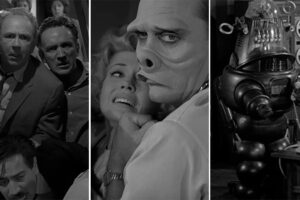
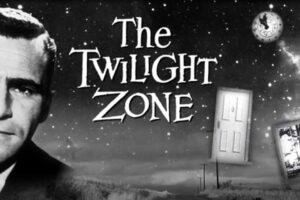
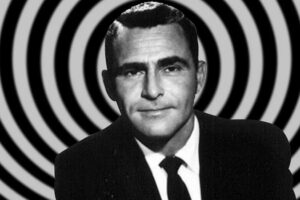
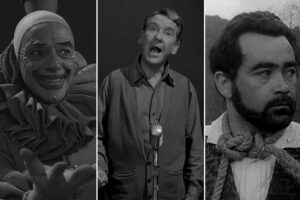

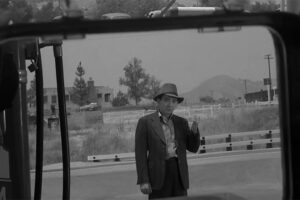
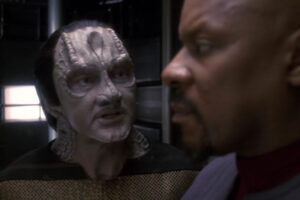
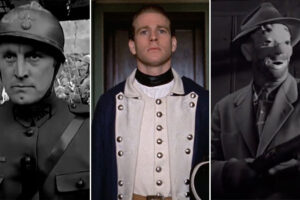
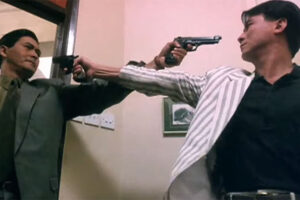
Leave a Reply